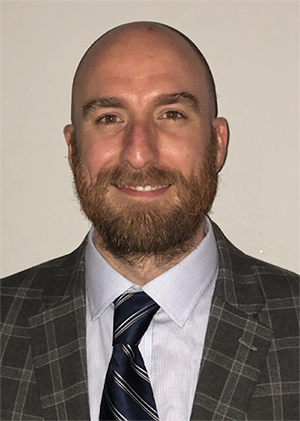Latest News
Research & Innovation
With potential for drug development, treatment of cancer and other diseases, Massey researcher earns national award
Nov 7, 2023
 Two VCU awardees receive MIRA grants through the National Institute of General Medical Sciences (NIH). The NIRA program is designed to promote scientific productivity and the chances for important breakthroughs.
Two VCU awardees receive MIRA grants through the National Institute of General Medical Sciences (NIH). The NIRA program is designed to promote scientific productivity and the chances for important breakthroughs.
Two Virginia Commonwealth University assistant professors have earned prestigious Maximizing Investigators’ Research Awards from the National Institutes of Health’s National Institute of General Medical Sciences. These are the first MIRA grants awarded to VCU.
 Brian Fuglestad, Ph.D., earned a prestigious Maximizing Investigators’ Research Awards from the National Institutes of Health’s National Institute of General Medical Sciences.
Brian Fuglestad, Ph.D., earned a prestigious Maximizing Investigators’ Research Awards from the National Institutes of Health’s National Institute of General Medical Sciences.
Brian Fuglestad, Ph.D., a member of the Developmental Therapeutics research program at VCU Massey Comprehensive Cancer Center and an assistant professor in the Department of Chemistry, and Alaattin Kaya, Ph.D., an assistant professor in the Department of Biology in the College of Humanities and Sciences, are recipients of the awards, which are intended to enhance “scientific productivity and the chances for important breakthroughs,” according to the National Institute of General Medical Sciences, the NIH unit that administers the MIRA program.
Fuglestad’s five-year project, “Peripheral membrane proteins and disease: tool development, basic investigations, and inhibitor design,” received first-year funding of more than $388,000 in August. It will focus on creating new tools to better understand peripheral membrane proteins and their potential in drug development as a method of delivering medication. The project, continuing through 2027, is expected to receive a total of more than $1.9 million.
“Peripheral membrane proteins are very important in cellular health and are central to many disease processes,” Fuglestad said. “These proteins are difficult to study, so oftentimes little is known about them, especially when they are interacting with membranes. We are focusing on developing new tools to study these proteins, learn more about their function at the molecular level, and using this information to develop potential treatment options for diseases such as cancer and inflammation.”
Fuglestad and his team will use a molecular assembly, called a reverse micelle, to mimic cellular membranes.
“We are the first to apply our newest versions of reverse micelles to the detailed study of peripheral membrane proteins,” he said. “We are currently working on designing potential drugs for these proteins as well, which we hope one day may lead to new and more effective treatments for certain cancers and inflammatory disorders.”
Written by: Mary Kate Brogan
Related News
Research & Innovation, Leadership
Massey leads ‘national team of cancer fighters’ at AACIOct 21, 2025
Research & Innovation, Community Engagement
Former NCI director champions staggering progress in cancer research during visit to MasseyOct 20, 2025
Research & Innovation
Massey scientists discover promising drug combination to overcome resistance in T-cell lymphomaOct 17, 2025

Get access to new, innovative care
Treatments in clinical trials may be more effective or have fewer side effects than the treatments that are currently available. With more than 200 studies for multiple types of cancers and cancer prevention, Massey supports a wide array of clinical trials.

Find a provider
Massey supports hundreds of top cancer specialists serving the needs of our patients. Massey’s medical team provides a wealth of expertise in cancer diagnosis, treatment, prevention and symptom management.
